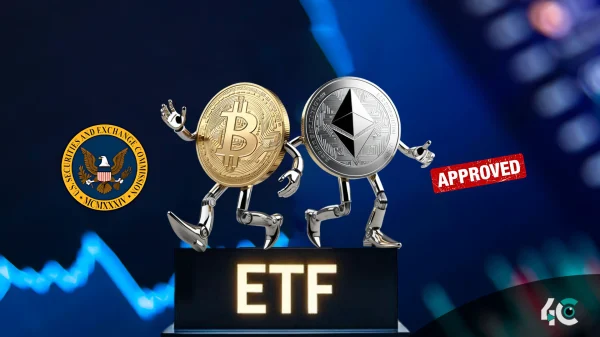The FDIC, the US regulator governing banks, has issued a comprehensive collection of materials on cryptocurrency laws. This release discusses how financial institutions sought approval to engage in digital asset transactions, as well as the hurdles they experienced.
The newly revealed files detail the frequent delays, increased scrutiny, and formal halt letters faced by banks seeking permission to offer cryptocurrency-related services. These challenges reflect the FDIC’s historically conservative approach to digital asset integration.
FDIC Acting Chairman Travis Hill recognized the shift in bank attitude, saying, “We are actively reevaluating our supervisory approach to crypto-related activities.” This comment suggests a potential policy shift, implying that regulatory organizations may be revising their position on digital asset use in the banking sector.
The disclosure of these documents followed legal action demanding transparency. Coinbase, a cryptocurrency exchange, submitted Freedom of Information Act (FOIA) petitions in October 2024, seeking information on the FDIC’s role in restricting banking services for crypto-related enterprises. In December 2024, the disclosure of the first tranche of severely censored records sparked legal action. Ana Reyes, a US judge, condemned the FDIC’s excessive redactions and urged it to give better documents.
In response to mounting concerns, Senator Cynthia Lummis urged the FDIC to keep all cryptocurrency enforcement data from 2022 onward. She also warned that the destruction of pertinent records could result in criminal referrals to the Department of Justice.
The newly leaked documents show that financial institutions dealing with digital assets must comply with stringent regulatory restrictions. The FDIC remains focused on three core concerns:
Financial stability risks include ensuring that exposure to digital assets does not jeopardize the integrity of the financial system.
Regulatory compliance entails tight scrutiny and risk management measures for cryptocurrency-related activity.
Consumer Protection: Emphasizing open communication to avoid deceptive financial practices.
While this release indicates a greater willingness to engage with digital assets, it does not represent a full regulatory transformation. The FDIC continues to take a cautious approach, ensuring that banks and cryptocurrency startups follow tough regulatory standards before widespread adoption occurs.
As the FDIC reassesses its rules, financial institutions and cryptocurrency service providers must stay informed and change their strategies accordingly. The changing landscape of cryptocurrency legislation remains complex, but these announcements represent a step toward increased transparency and control in the market.














































